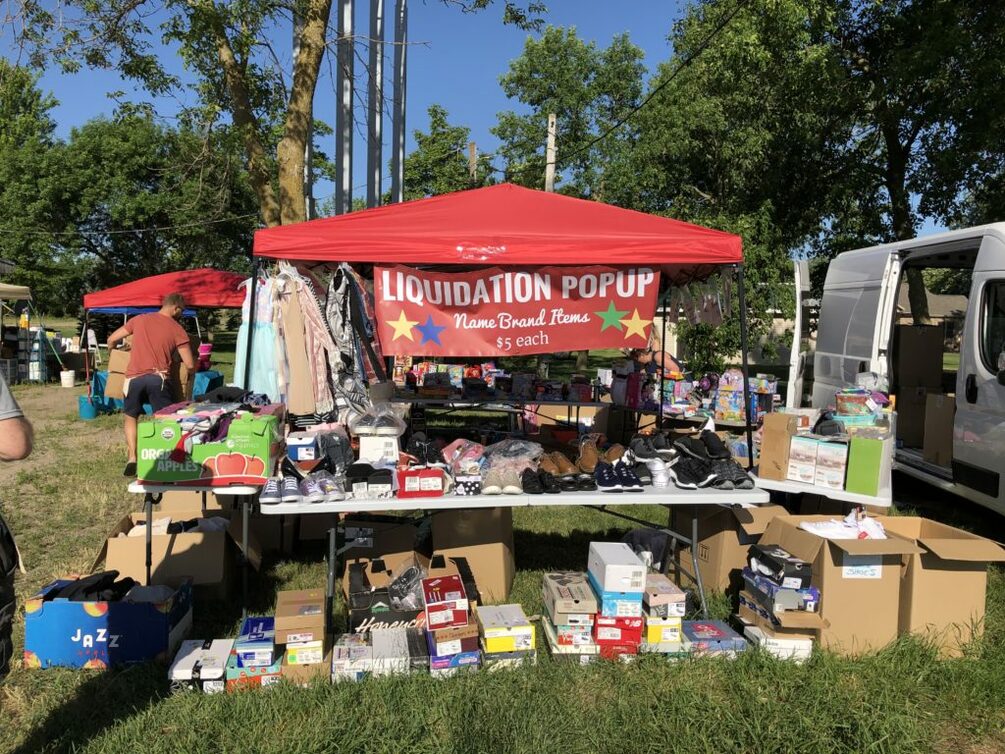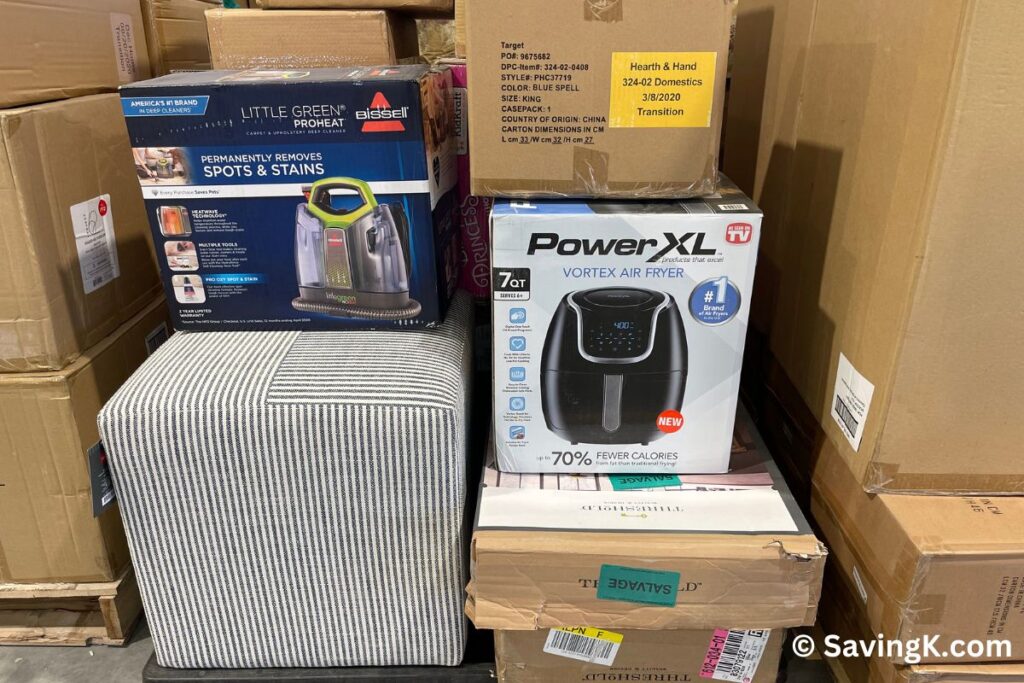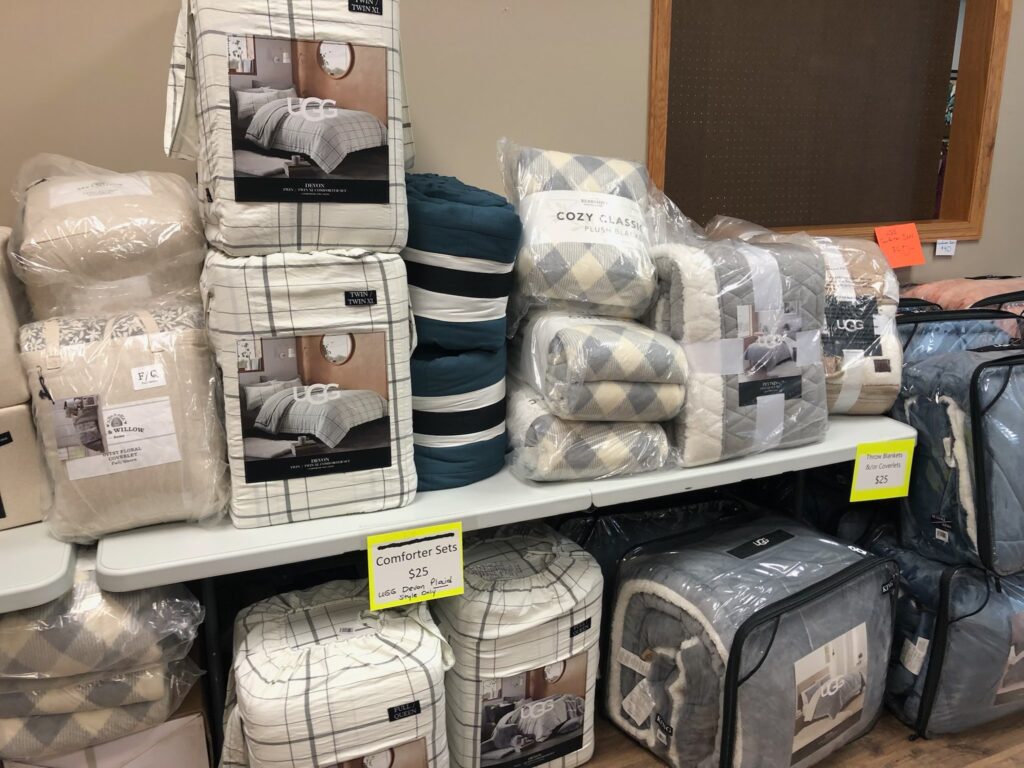
Store liquidations have always held a certain allure for shoppers seeking incredible deals on a wide range of products. Whether you’re a thrifty shopper looking for significant savings or an entrepreneur hunting for inventory to resell, store liquidations offer a unique opportunity to access goods at unbeatable prices. In this article, we will look at the world of store liquidations, exploring why stores liquidate and where consumers can find these liquidated goods near them.
Contents
Why Stores Liquidate
Store liquidation is the process by which a retail business sells off its assets, including merchandise, fixtures, and equipment, typically at deeply discounted prices. There are several reasons why stores choose to liquidate:
Going Out of Business Sales
One of the most common reasons for store liquidations is financial trouble. Retail businesses facing bankruptcy, insolvency, or significant debt often opt to liquidate their assets to recoup some of their losses.
When a store is closing permanently, it often conducts a “going out of business” sale. These sales offer shoppers a final chance to purchase items at steep discounts before the store shuts its doors for good.
In recent years, we’ve witnessed the closure and liquidation of several prominent name brand stores, including Bed Bath & Beyond. These closures often stemmed from a combination of factors, such as shifting consumer preferences, increased competition from online retailers, and the economic challenges posed by the COVID-19 pandemic. As a result, Bed Bath & Beyond stores have conducted liquidation sales to sell off their remaining inventory and assets. These events have attracted bargain hunters and savvy shoppers looking to score significant discounts on household goods, décor, and other items synonymous with this iconic brand. While it’s sad to see these beloved stores go, these liquidation sales provide a final opportunity for consumers to acquire quality products at unbeatable prices.
Another notable example of a store that liquidated is Toys “R” Us. In 2018, the iconic toy retailer filed for bankruptcy and subsequently announced the closure of its stores across the United States.
Rebranding or Relocation
Stores sometimes liquidate to make way for a rebranding effort or to relocate to a different location. In such cases, they may choose to sell off their existing inventory rather than transporting it to the new location.
An example of a store rebranding to a different name is Dunkin’ Donuts, a well-known coffee and doughnut chain. In September 2018, Dunkin’ Donuts announced that it would be simplifying its brand by dropping “Donuts” from its name. The new name, simply “Dunkin’,” reflected the company’s emphasis on its beverage offerings, including coffee and various beverages, as well as a broader menu beyond doughnuts.
A dual rebranding and relocating example is one that I personally spearheaded. We originally opened what we simply called the Liquidation Boutique, but when we moved the business to a larger city, we rebranded as Bend The Trend, but kept “liquidation boutique and more” as the tagline.
Seasonal Clearance
Seasonal stores, like Halloween or Christmas shops, frequently undergo liquidation after their peak seasons. This allows them to offload seasonal items quickly to make room for the next season’s merchandise. And this makes for great bargains at liquidation stores as seen below.
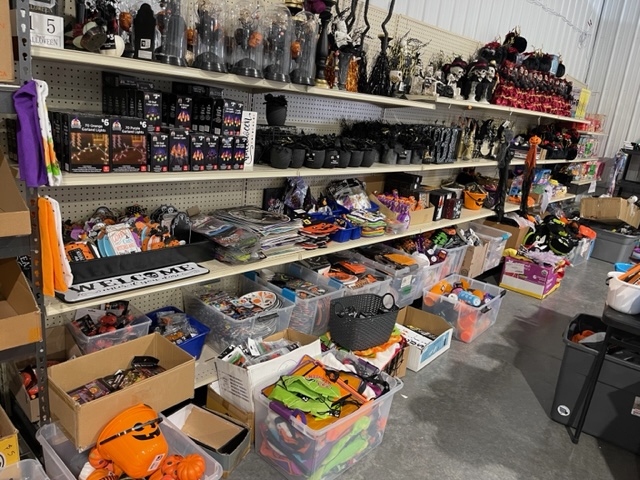

Excess Inventory
Stores with an abundance of unsold inventory may decide to liquidate in order to free up shelf space for new products. This is particularly common in the fashion and electronics industries, where trends change rapidly.
How Do You Find Store Liquidations?
Consumers eager to take advantage of store liquidations can find these discounted goods through various channels:
Brick-and-Mortar Liquidation Sales
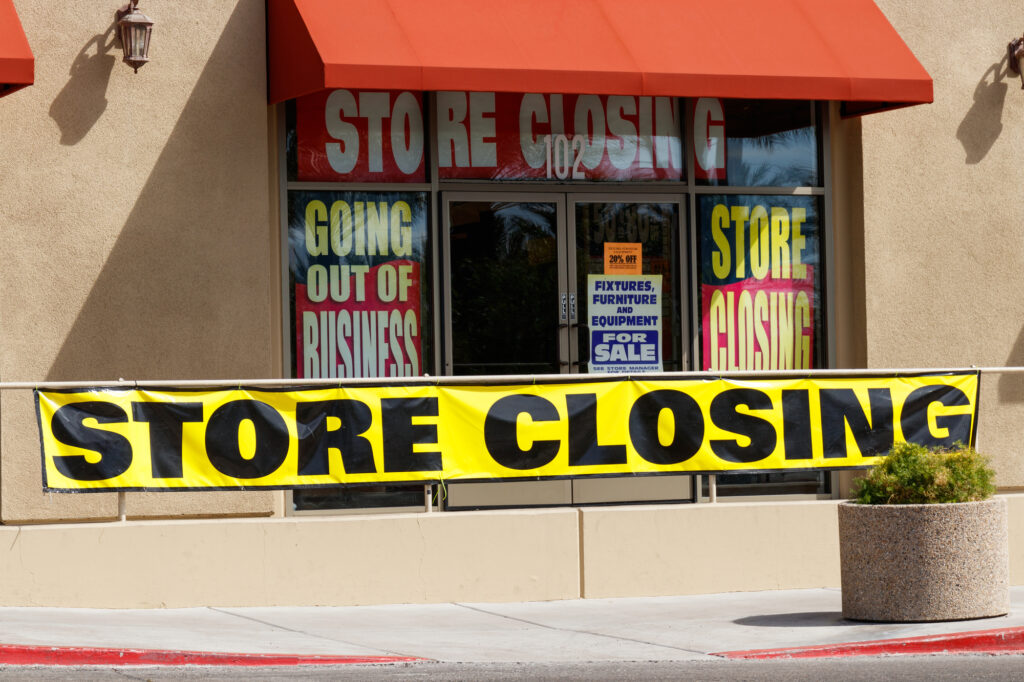
Many stores hold physical liquidation sales in their retail locations. These sales are typically heavily advertised, making it easy for local shoppers to find out about them. Look out for signs, flyers, or social media announcements.
Liquidation Auctions
Some liquidated goods are sold through auctions, either in physical auction houses or online platforms. Bidders can compete for items ranging from electronics to furniture. Websites like eBay, Direct Liquidation, and B-Stock Solutions often host liquidation auctions.
Discount Retailers
Some discount retailers specialize in selling liquidated merchandise. These stores purchase goods from liquidations and then resell them to consumers at a lower cost. Examples include TJ Maxx, Ross, and Big Lots.
Liquidation Stores & Warehouses
Liquidation stores and warehouses are dedicated to selling discounted merchandise. They often carry a wide variety of items from multiple sources, providing consumers with a treasure trove of deals. To find a liquidation store near you, click here. You can also search Google for “liquidation store near me”.
Liquidation stores typically collaborate with brokers to acquire liquidation items in large quantities, often purchasing them by the pallet or truckload. Additionally, certain stores establish direct contracts with name-brand retailers. A wide variety of retailers engage in merchandise liquidation, so you may be able to discover liquidation items at any of the following locations:
- Amazon Liquidation
- Costco Liquidation
- CVS Liquidation
- Kohl’s Liquidation
- Lowe’s Liquidation
- Sam’s Club Liquidation
- Target Liquidation
- Walmart Liquidation
Flea Markets and Swap Meets
Local flea markets and swap meets are excellent places to find liquidated goods as well. Many vendors at these markets specialize in selling surplus or overstock items obtained from store liquidations. In fact, our very first Liquidation Popup sale was held at a vendor show, and we used to attend flea markets as well.
Online Marketplaces
E-commerce giants like Amazon and Walmart also sell liquidation items, mainly through third-party marketplace sellers (click here to see how we make money as Amazon FBA sellers). Consumers can browse these online marketplaces for discounted products.
Conclusion
Store liquidations present an opportunity for consumers to snag incredible deals on a wide range of products, from clothing and electronics to furniture and home goods. By understanding why stores liquidate and where to find these discounted goods, shoppers can make the most of this bargain hunter’s paradise. Whether you’re looking for personal savings or hoping to start a small business, store liquidations are a valuable resource for savvy consumers. Just remember to act quickly, as the best deals often go fast in this competitive market.

Featured Image Credit: Deposit Photos
- How To File Your 2024 Income Taxes Online For Free In 2025 - January 20, 2025
- How To Win Sweepstakes and Contests - December 7, 2024
- Lessons Learned From Eric Thomas - October 29, 2024

